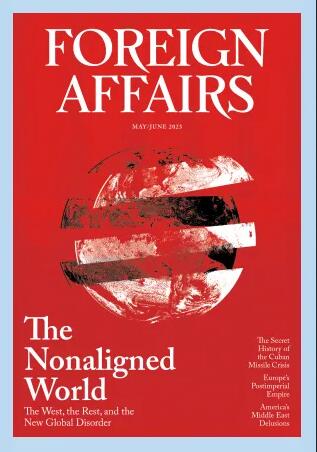Swedish Policy of Сountering the COVID-19 Pandemic
IF 6.3
2区 社会学
Q1 INTERNATIONAL RELATIONS
引用次数: 0
Abstract
Statement and relevance of the problem. In early 2020, the outbreak of coronavirus disease came as a surprise to the whole world. The need for effective counteraction at the global and regional levels required decisive action from international organisations and state governments. The World Health Organization has announced the pandemic and the need for a thorough and urgent fight against it. European countries have introduced strict restrictive measures, in particular, mass self-isolation, restrictions on economic and trade activities, termination of the educational process with its subsequent transfer to distance learning, etc. Sweden was the only EU member state to pursue a much softer and more liberal policy in the context of the coronavirus pandemic. The purpose of the study is primarily to investigate features of the Swedish model of countering the spread of COVID-19. Scientific research is based on the use of comparative historical and statistical methods, and elements of retrospective and prospective factor analysis. Conclusions and prospects of the study. Based on the investigation of the Swedish government's policy on the COVID-19 pandemic, a number of features of the measures applied were highlighted. The Swedish model was based on the principle of public responsibility and reliance on a highly developed national health system. The basic course was to develop collective immunity in society. An important role was played by the principle of voluntariness, which did not provide for the introduction of a nationwide quarantine. Therefore, (especially at the initial stage) restrictive measures in Sweden were mild and mostly advisory in nature. Additionally, the need to maintain social distance and personal hygiene was emphasised. No strict measures or restrictions were introduced for the economy; businesses and institutions were advised to switch to remote work. Sweden has become the only EU country that has not implemented a lockdown in the midst of the coronavirus pandemic. Swedish counteraction policy, as a response to the COVID-19 pandemic, was based on the principle of situational response: the authorities implemented certain measures in accordance with their timeliness and effectiveness. All this suggests a special Swedish model of state policy aimed at effectively overcoming the manifestations and consequences of the coronavirus pandemic. The generalisation of Sweden's experience would allow developing approaches for creating effective measures to prevent and quickly counter such threats瑞典Сountering COVID-19大流行政策
问题的陈述和相关性。2020年初,冠状病毒病的爆发震惊了全世界。为了在全球和地区层面采取有效的应对措施,国际组织和各国政府必须采取果断行动。世界卫生组织宣布了这一流行病以及彻底和紧急抗击它的必要性。欧洲国家采取了严格的限制性措施,特别是大规模自我隔离、限制经济和贸易活动、终止教育进程并随后转向远程学习等。瑞典是唯一一个在冠状病毒大流行背景下采取更温和、更自由政策的欧盟成员国。本研究的主要目的是调查瑞典应对COVID-19传播模式的特点。科学研究的基础是使用比较历史和统计方法,以及回顾性和前瞻性因素分析的元素。结论与展望。在对瑞典政府应对新冠肺炎疫情政策进行调查的基础上,强调了所采取措施的一些特点。瑞典模式以公共责任原则和高度发达的国家卫生系统为基础。基本方针是在社会中发展集体免疫。自愿原则发挥了重要作用,该原则没有规定实行全国范围的检疫。因此,瑞典的限制措施(特别是在最初阶段)是温和的,主要是咨询性质的。此外,还强调了保持社交距离和个人卫生的必要性。没有对经济采取严格的措施或限制;企业和机构被建议转向远程工作。瑞典成为唯一一个在冠状病毒大流行期间没有实施封锁的欧盟国家。作为对COVID-19大流行的应对措施,瑞典的应对政策基于情境应对原则:当局根据其及时性和有效性实施了某些措施。所有这些都表明,瑞典采取了一种特殊的国家政策模式,旨在有效克服冠状病毒大流行的表现和后果。推广瑞典的经验将有助于制定办法,制定有效措施,预防和迅速对付这种威胁
本文章由计算机程序翻译,如有差异,请以英文原文为准。
求助全文
约1分钟内获得全文
求助全文
来源期刊

Foreign Affairs
INTERNATIONAL RELATIONS-
CiteScore
4.80
自引率
0.00%
发文量
2
期刊介绍:
Founded in 1922, Foreign Affairs is a prominent American magazine that focuses on international relations and U.S. foreign policy. It is published by the Council on Foreign Relations, an esteemed nonpartisan think tank and membership organization dedicated to analyzing U.S. foreign policy and global affairs. While the print magazine is released every two months, the website offers daily articles and publishes anthologies every other month.
 求助内容:
求助内容: 应助结果提醒方式:
应助结果提醒方式:


